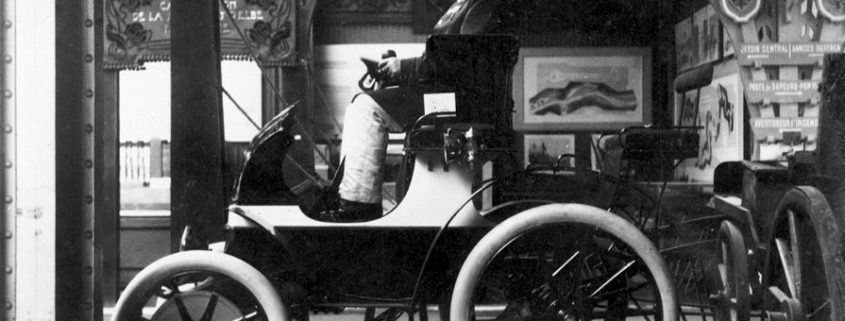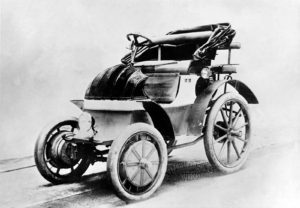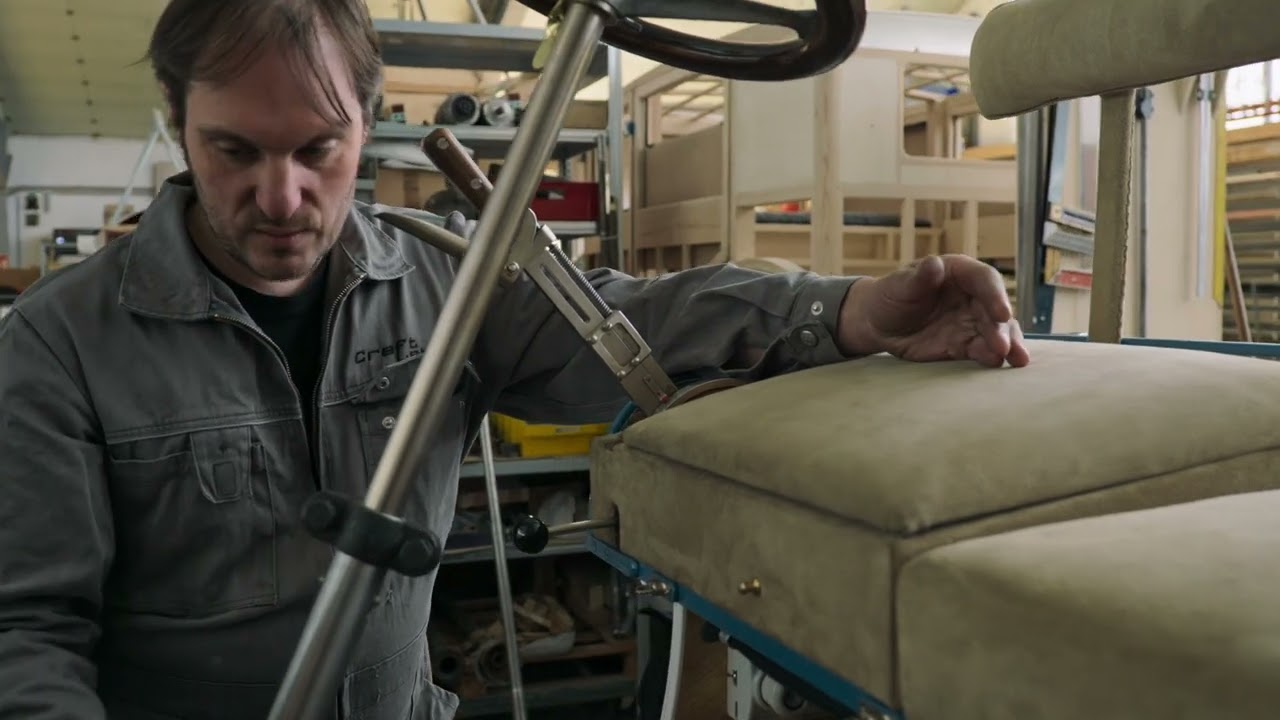The first Porsche was electric – the 1900 Lohner Porsche
Ferdinand Porsche was not only a brilliant design engineer but also, first and foremost, a pioneer with foresight. He built his first zero emission vehicle for his boss at the time, Bela Egger of the electrical engineering company VEAG, already in 1896 – an electrically powered carriage assigned by Ludwig Lohner. The vehicle was named Egger-Lohner and Porsche played a considerable role in its development.
As all petrol engine manufacturers in Europe were either unable or reluctant to supply, Ludwig Lohner of the company k.u.k. Hof-Wagen-Fabrik Jacob Lohner decided to take his own path in 1898 with the construction of electric vehicles. There was also a decline in carriage building at the end of the 19th century and the young engineer recognised that the future belonged to motor vehicles. A further reason for the development of electric drives and particularly topical today, was the air and noise pollution caused by loud combustion engines.
Elektromobile « System Lohner Porsche »
In 1899 Ferdinand Porsche left VEAG to join k.u.k. Hof-Wagen-Fabrik Jacob Lohner where he developed the electromobile “System Lohner-Porsche”. The electric vehicle was first presented at the Paris World Exposition in 1900. The automobile world looked on in amazement!
The Lohner Porsche was constructed in a very similar way to the carriage by Lohner with typically large rear wheels and wooden spokes. It had a vehicle body out of wood with a large top out of black varnished leather to protect drivers from the rain and was powered by two wheel hub motors in the front wheels. These electric wheel hub motors already went into production in Lohner’s workshops in the Donaufelderstraße in Vienna, in 1990, when the world exhibition in Paris opened.
The internal pole electric engines built into the hubs had an output of 2.5 hp each. The wheel hub motor in the front wheels was the first patent registered on the Porsche & Lohner name. The vehicle reached a maximum speed of up to 40 km/hr.
Due to the heavy weight of the 42-cell lead accumulators as well as the wheel hub motors the electric drive found it hard to assert itself on the automobile market. Furthermore, the maintenance as well as the charging of the batteries was difficult, and the vehicles were expensive with sales slow to take off. In 1900, Lohner only sold five electric cars and eleven in the following year.
Replica of the Lohner Porsche 1899
The Replica of the Lohne-Porsche 1899 is on display in the entrance area of the oldtimer exhibition at fahr(T)raum Mattsee near Salzburg. The Lohner Porsche 1899 is also available as model car on a scale of 1:18 and 1:43 in the fahr(T)raum oldtimer museum and online shop.
Blog post: The world´s first four-wheel drive car was a Porsche
Blog post: Lohner-Porsche Mixte 1901
Sources
Ludvigsen, Karl (2010): Ferdinand Porsche – Genesis eines Genies
Porsche Museum präsentiert historisches Hybridautomobil aus dem Jahr 1900
Die Geschichte von Porsche beginnt elektrisch
Der Erfinder des elektrischen Radnabenmotors
Bildnachweis
Porsche AG
Fahrtraum GmbH
This might also interest you:









Ferdinand Porsche at Austro-Daimler – Career highlights
/dans Geschichte, Lebensstationen, Non classifié(e), Rennautos, Sonstige FahrzeugeFollowing the departure of Paul Daimler from the Austro-Daimler plants in Wiener Neustadt in 1905 – he replaced Wilhelm Maybach in the design office in Stuttgart – Emil Jellinek, diplomat and businessman, participated in the company. He transformed what he considered the « obsolete » plant into a modern car factory and brought a brilliant young engineer […]
Auto Union Type C – most successful German Grand Prix racing car in 1936!
/dans Geschichte, Motoren, Non classifié(e), RennautosThe Auto Union Type C was the most successful German Grand Prix racing car in 1936. It won three out of five Grand Prix races, half of the circuit races and all hill-climbs in which Auto Union participated. In addition, the Type C set more than thirty world records. In order to minimise the financial […]
NEW at fahr(T)raum: Steyr Type 30 Cabriolet (1931)
/dans Geschichte, Non classifié(e), Sonstige FahrzeugeFerdinand Porsche, who has gone down in history as a pioneer of automotive engineering, developed a car for the upper middle class for the Steyr-Werke in 1929: following his career as Technical Director at Austro Daimler (1906-1923). He very advantageously reengineered, as instructed by Steyr, the Steyr type XX and created a substantially new model […]